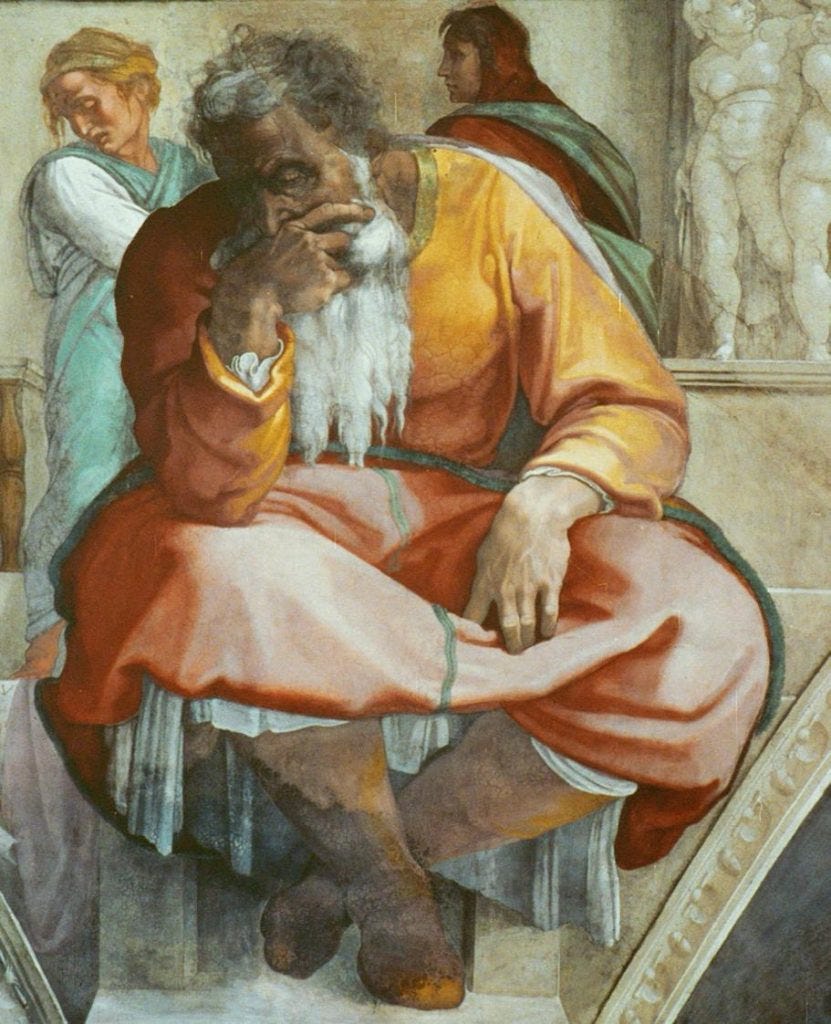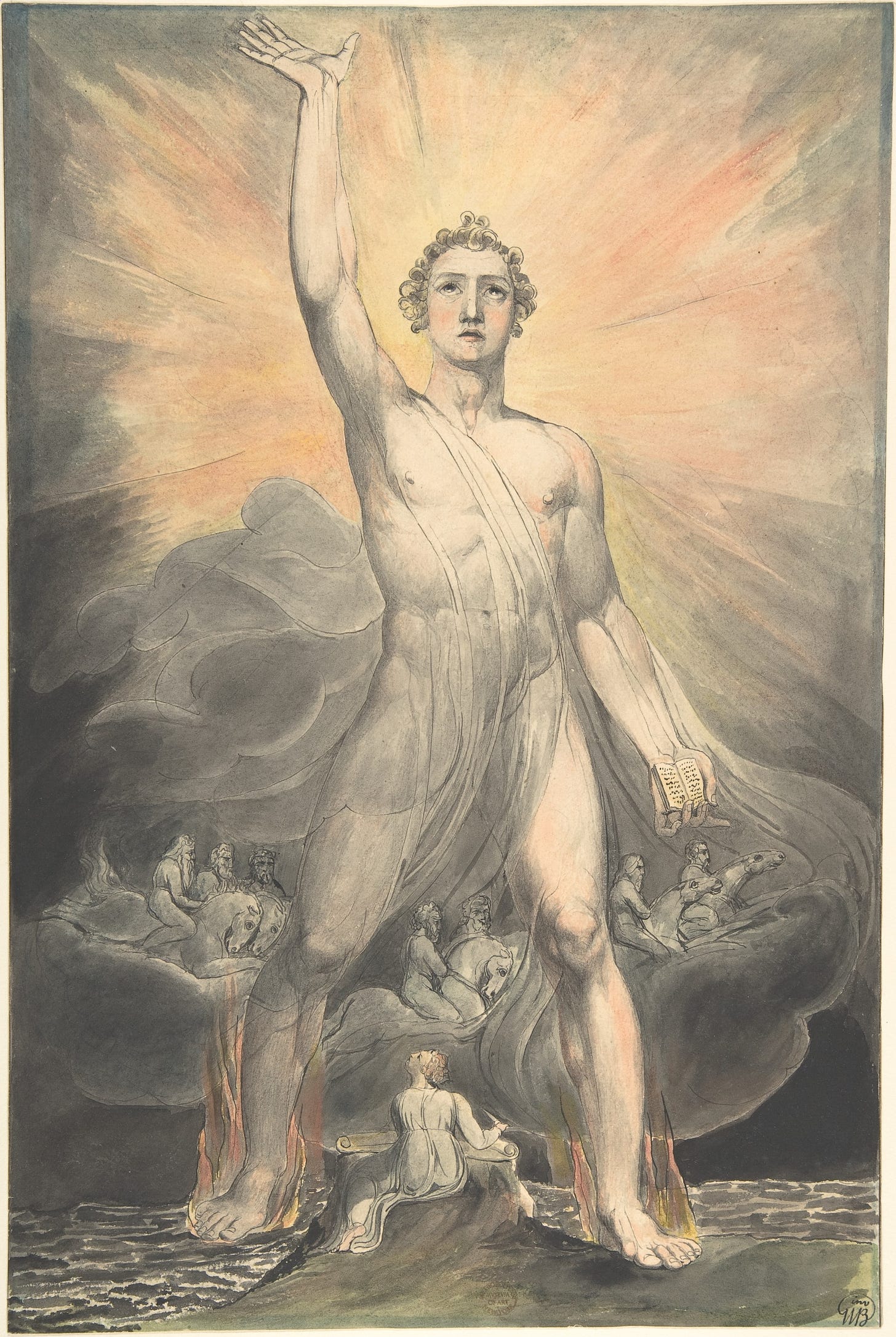Suffering Towards Godliness
Lessons in Loss and Revelation
Consciousness had never been so painful, sleep never so sweet. My dreams became havens of respite, and even sanctuaries of reunion, because in them I found you. But these tricks of the mind at night always gave way to a trick of the heart in the morning, repeatedly thrusting me back into a waking nightmare among the living. Your sudden absence severed time, dividing my existence into two epochs: there was life before you, and then, in an instant, life after. It was as if a devastating quake had opened a cavernous gap between the present and the past. I stood on one side, and you somewhere on the other. Loss has only one meaning now.
On the morning of January 14, 2012, I received a phone call from my mom. “Micah’s gone … She’s gone … You need to come home, son.” My shock and disbelief manifested as sobs into the phone. My mom was calling her youngest son home because her youngest daughter (17) had taken her own life. Just a day before, I had been so close to Micah; I had knelt by her side and kissed her goodbye as she laid on the living room floor. I wish I had lingered. I wish I had stayed. How could I have known it was that kind of goodbye? Suddenly, suffering took on a new and singular significance. This was a pain only made possible by love. “This losing [was] true dying.”1
And yet I live. Micah’s suicide revealed to me an acuteness of suffering and loss of the kind that cannot be anticipated before the trauma-inducing incident nor fully articulated in the debris-filled aftermath. As Emerson put it, “the event of death is always astounding; our philosophy never reaches, never possesses it; we are always at the beginning of our catechism.”2 Micah’s death astounded; it astounds me still. And yet, I can’t help but pursue my own catechesis to try to understand, name, and explain her pain and death and my relationship to them. Over the years, I’ve attempted to speak with the dead. I’ve written short notes to Micah, not unlike the ones that open and close this piece. These unanswered love letters are about my pain, a pain that mediates my deficient but determined efforts to understand her pain.
Investigating suffering, that of oneself or of others, can be spiritually paralyzing. In the immediate aftermath of Micah’s death, I obsessively pored over her writings in a quest to uncover and identify her suffering and to relieve my own. I had known something of Micah’s pain while watching loving parents work to move heaven and earth to help her. I do not have the understanding, capacity, or space to detail the sources or extent of her suffering, but I know enough to say that she struggled with feelings of abandonment, endured communal and societal pressures and disappointments, and experienced the trauma of racism, troubled relationships, and sexual abuse. Micah did not articulate all of this in her journals, most of which she kept as a preteen and an early teenager, but she did capture the sting of cutting racism and the heartache of rocky relationships. Her markings in lead and ink inscribe pain backward and forward in time, signifying her own emotional wounds as an adolescent, while scarring my adult soul.
As I mined Micah’s journals for answers, and unearthed remainders of her suffering, I unintentionally drew apart from others in an attempt to draw near to her. I wanted to pull Micah back into time and space through the enduring words she had left behind. This endeavor turned me—an unabashed introvert—further inward in a way that threatened to leave me entirely disconnected from the world. This was a desperate one-man rescue mission, one in which I was bound to fail. After all, records can’t raise the dead.
But, as a Latter-day Saint and a historian, I’m inclined to believe that records can reveal. While Micah’s journals unveiled pain with power to immobilize me, her archives of suffering also held the potential to open me up to a God who has power to open me up to others. That potential rests in my belief in a Jesus who wept, a God who weeps, and prophets who cry unto the Lord.
I believe that the Son and the Father weep because they refuse to look away from evil. They choose to share in our suffering. When Enoch questioned the Father for weeping, the Father asked him to look, really look, at man’s inhumanity to man. And Enoch “looked upon [the people’s] wickedness, and their misery, and wept” (Moses 7:41). Enoch had been preoccupied with the salvation of his own community. So preoccupied, in fact, that he had succeeded in creating a Zion that God had lifted into heaven. Enoch’s efforts had raised the living. But the Father had to remind him of those who had been left behind, of those who still suffered down in the dirt. In the process, Enoch learned that God’s life was not a life without suffering, because God’s love was not confined to those who loved him. He realized that to love like God meant to suffer like God.
Joseph Smith learned a similar lesson through his contemplation of the Saints' suffering, which opened his ears to revelation. The lowly circumstances of Joseph’s revelatory experience couldn’t have been more different than Enoch’s exalted encounter. Whereas Enoch came to comprehend godlike suffering from a heavenly Zion within “the bosom of the Father,” Joseph’s lesson came while in the bowels of an earthly prison, and after his repeated failure to establish a new Zion (Moses 7:47). While in captivity on charges of treason and murder in Liberty, Missouri, Joseph received news of the Saints’ miserable removal from the state. Like Enoch, Joseph was most concerned for his own people. He worried that God had forgotten his “suffering saints” (D&C 121:6).
The Lord responded by reminding him that he, “The Son of Man,” had “descended below them all,” and then asked, “Art thou greater than he?” (D&C 122:8) In Christ’s moment of greatest need, he himself had wondered where God had gone. And through his supreme condescension—his own voluntary death—the suffering servant became the succoring Savior for those of one heart and one mind, as well as for those who hated each other. Perhaps, then, the Lord’s question was meant to teach Joseph that he, like Enoch, had focused too much on the suffering and salvation of his own people and had not considered the breadth and depth of all human suffering.
Regardless of the Lord’s purpose, Joseph learned that to commune with God involved stretching the mind as “high as the utmost Heavens” and sinking it into the “darkest abyss.”3 His post-prison teachings suggest a new level of concern for human suffering. In 1840, Joseph instructed the apostles that “a man filled with the love of God, is not content with blessing his family alone, but ranges through the whole world, anxious to bless the whole of the human family.”4 During the same year, he introduced the practice of baptism for the dead, which reflected a vision of salvation so expansive it embraced every single one of God’s innumerable children.
So I believe in a Jesus who wept, in a God who weeps, and in prophets who cry unto the Lord. But weeping and crying is not just for them. I believe that these actions are for all of us to enter into a covenant to “mourn with those that mourn … and comfort those that stand in need of comfort” (Mosiah 18:9). The suffering and succoring Servant calls forth the suffering and succoring Saints.
I know such succoring Saints. After Micah’s death, many friends matched my tears with their own. One night, one such friend called me and made me inspired, sacred promises. I was compelled to create a record of the experience, which I described “as a bright moment of light in a dark night.” This friend had mourned with me and comforted me when I was in need of comfort.
I believe discipleship requires that we look at suffering with enough focus and care that we are moved with compassion to respond. Perhaps like Joseph we need to contemplate evil and suffering of the kind that makes us wonder where God is—or even if God is—because this is also the kind of suffering that brings us so low that we can’t help but look upward to God and then outward to God’s children. We can’t take on all human suffering as Christ did, but we are called to emulate him in suffering toward godliness. The process can be confusing and slow, and demands much more than rubbernecking at human suffering. The uncomfortable and inconvenient work of stopping, sitting, and staying allows us to imagine the interiority of others and to recognize that their suffering could be ours and that it was and is Christ’s. This has the power to change us, to make us godly and even godlike. We become fellow wayfarers on the rough roads of life.
I wrote Micah a letter in 2011. I said I didn’t know whether we would become “eternal pen-pals,” but that I wanted to thank her for sharing some of her suffering with me, even if I couldn’t fully understand it. My letter-writing to Micah continues. I still read her records, but I no longer do so in search of easy answers to my grief. Instead, I use her writings as inspiration for my own, a generative process that guides me outside of myself and allows me to better contemplate and communicate Micah’s suffering and the suffering of others. In short, speaking (writing) to the dead has awakened me to human suffering. And while I await Micah’s reply, she has left much, in both word and deed, to contemplate.
After you left us, we shared stories of you. Mom told us of a trip to the hospital, where they hoped to find you help. While waiting in a crowded hallway, you noticed a grown man, weeping on a nearby hospital bed. You expressed your concern to mom and then acted on that concern by walking over to the man, jumping up beside him, and telling him that everything would be okay. When a police officer directed you to leave him, you walked back with tears in your eyes, explaining to Mom that you had only wanted to help. You struggled to fit in and find love, but like the Father and the Son, you knew how to weep with those suffering “down in the dirt.”
Near the conclusion of the 2021 film “Drive My Car,” Yūsuke Kafuku, a mournful and contemplative theater director, shares a quiet moment with his driver, Misaki Watari. In a silent, snowy landscape, Kafuku observes that “those who survive keep thinking about the dead. In one way or another, that will continue.” If I could only be so lucky, Micah. I’ll keep thinking about you and I’ll keep learning from you. I’ll weep and I’ll write.
Jordan Watkins is Assistant Professor of Church History and Doctrine at BYU and the author of Slavery and Sacred Texts: The Bible, the Constitution, and Antebellum Historical Consciousness.
Editors Note: Today marks the eleven year anniversary of Micah’s death.







Beautiful Micah, I hope you are resting in power and in peace. Jordan, I'm so deeply sorry for your family's loss. This is a fitting tribute to your sister on a sacred day. So many of us have such dates scarred into our hearts. 5-2-89 9-2-96